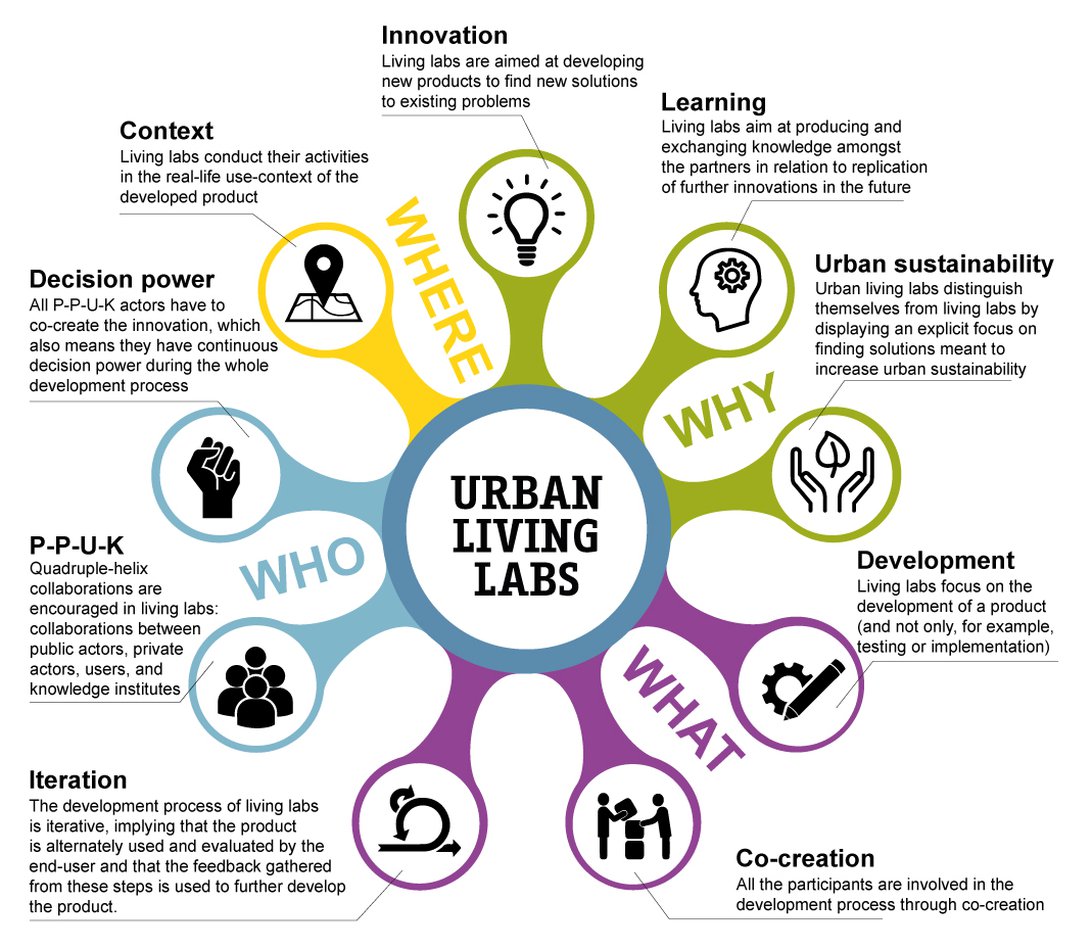5.3.5 Urban Living labs
Course subject(s)
Module 5. Stakeholder Engagement
Bonus material: Urban Living Labs
Living Labs In the past years, the concept of living labs has become a buzzword.
It is difficult to give a precise definition of the term, but as a first indication, you can see urban living labs as an approach to innovation where multiple actors and users collaborate to develop and experiment with innovation in a real-life setting. Because of their embeddedness in real-life situations, Living Labs are different from traditional labs, in which research and innovations are developed in isolated spaces where complexity is controlled.
Especially in practice, living labs are used to refer to all kinds of projects, from researching the effectiveness of education methods in a classroom to running a zero-carbon supermarket. However, they are defined by these nine characteristics, making them quite a specific thing. Two core components of living labs are innovation and co-creation. Including new, multidisciplinary stakeholders in the design process opens up the potential to come to new solutions in places where institutions have so far failed to build concrete answers. Furthermore, by directly involving the end-users and other relevant stakeholders in the product development process, they foster better and more integrated and sustainable solutions, providing a match with the real needs and aspirations of the stakeholders.
These promises of Innovation and integration are directly linked to the process of cocreation. In living labs, co-creation implies that all stakeholders participate during the whole development process of an innovation. To come to truly integrated solutions that meet all stakeholders’ requirements, the living lab approach requires the public authorities, private parties, knowledge institutes and end-users of the innovation to establish shared understandings of the problem and the best way to solve it.

Urban Living Labs Diagram posted by Amsterdam Institute for Advanced Metropolitan Solutions (AMS).
In the next web lecture, produced by JPI Urban Europe, Timo von Wirth from the Dutch Research Institute for Transitions in the Netherlands, will discuss:
- Knowledge and definitions on our understanding of urban living labs (ULL)
- Rationale: why are Urban Living Labs currently ara promising and proliferating format in the context of particularly sustainability transformation in cities?
- Different forms of ULL’s: Strategic, Citizen and Grassroot
- From local experimentation and co-creation to new policies and regulations.
- Why we need a critical perspective!
Urban living labs: opportunities and obstacles

Smart and Sustainable Cities: New Ways of Digitalization & Governance by TU Delft OpenCourseWare is licensed under a Creative Commons Attribution-NonCommercial-ShareAlike 4.0 International License.
Based on a work at https://online-learning.tudelft.nl/courses/smart-and-sustainable-cities-new-ways-of-digitalization-and-governance/ /



